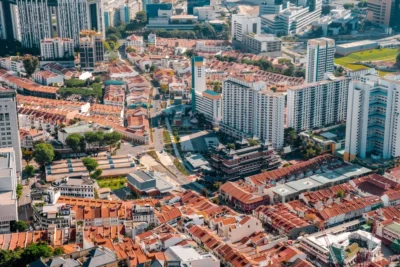New survey reveals luxury ‘must haves’ for your home
The average luxury home buyer seeks features and amenities that match their contemporary lifestyle
Luxury Portfolio International (LPI), the luxury arm of Leading Real Estate Companies of the World, reveals purchases, features, and amenities ‘must haves’ for the luxury property buyer in its comprehensive study of the world’s most affluent households.
On top of property purchases, most buyers look forward to making additional purchases to design their homes in their own way. On average, international luxury home buyers plan on extra purchases in 4.7 out of nine listed categories. Furniture is the most popular at 71 percent, followed by décor at 64 percent, appliances at 59 percent, electronics at 59 percent, and home gym equipment at 49 percent.
Beyond these purchases, the luxury home buyer selects home ‘features’ that compliment modern working, living, and playing at home needs. This includes great internet connection (66 percent), quiet spaces for each family member (56 percent), chef’s kitchen (53 percent), home gym (53 percent), and home threatre (51 percent).
More: Government lures wealthy tourists to free Thailand from middle income trap
International luxury home buyers are looking for homes with amenities that provide modern conveniences, with security systems coming on top, along with smart home technology, and health and wellness facilities. As online shopping becomes increasingly favoured, this may extend the need for concierge and valet services to manage deliveries.
Mickey Alam Khan, president of Luxury Portfolio International, said, “International luxury homebuyers prefer newer builds that offer lots of space to accommodate family and guests, and amenities that promote security, safety, diversions, and a resort-like atmosphere. Extras that make daily living easier, such as concierge or valet services, bring a premium and are in demand for those who seek a city/town or resort setting. The average luxury home buyer is interested in features and amenities that fit with modern life: great Internet, space for each family member, and specialty rooms (gym, media, office) that can be outfitted with smart home and sustainability technology. Ultimately, there are many who feel the home should enable their self-sufficiency, especially in a place where they may not be established with a social network.”
Recommended
Foreign demand recalibrates in Southeast Asia housing markets
Even amid global headwinds, Southeast Asia’s property markets hold appeal for foreign buyers
Tariffs and turmoil test Singapore homes as suburbs hold firm
Foreign levies, regional wars, and buyer fatigue are putting pressure on the city-state’s housing market
Gulf luxury markets lure global capital amid policy shift
Gulf nations are shaking off a reputation for overt bling to lead a post-pandemic luxury boom
China housing slump deepens as oversupply drags prices
Concerns remain over surplus inventory built by troubled property developers as prices continue to fall across all but a handful of major cities









